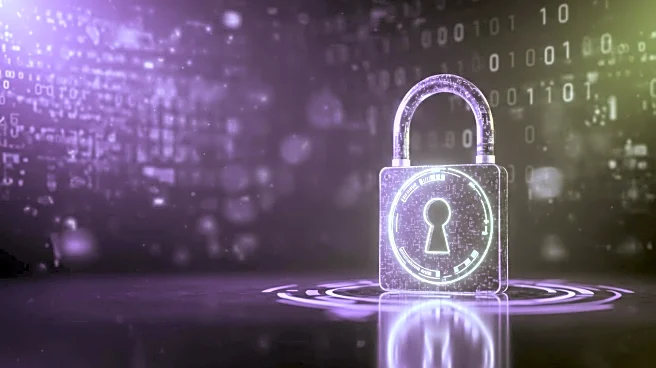What is the story about?
What's Happening?
Cybersecurity experts are emphasizing the need for organizations to adopt zero-trust strategies in response to increasingly sophisticated cyber threats. According to research by Keeper Security, 92% of IT and security leaders have observed a rise in cyber-attacks, with many noting the growing complexity of these threats. Traditional cybersecurity measures are deemed insufficient, prompting a shift towards real-time monitoring and proactive defense strategies. The zero-trust approach involves securing access to critical resources and managing identity access across all devices, aiming to prevent lateral movement within systems and reduce the impact of potential breaches.
Why It's Important?
The rise in cyber threats poses significant risks to businesses, governments, and individuals, necessitating a reevaluation of cybersecurity strategies. The adoption of zero-trust principles could enhance security by ensuring that every access request is verified, regardless of its origin. This approach not only strengthens defenses against breaches but also aligns with the evolving nature of cyber threats, which increasingly leverage AI and other advanced technologies. As organizations implement these strategies, they may achieve better compliance, governance, and overall security posture, safeguarding sensitive data and systems.
What's Next?
Organizations are expected to continue consolidating their cybersecurity strategies, moving away from layered product stacks towards unified platforms. This shift will likely involve increased collaboration with cybersecurity professionals to navigate the changing threat landscape. As zero-trust strategies gain traction, businesses may also invest in training and resources to ensure effective implementation. The ongoing evolution of cyber threats will require continuous adaptation and innovation in cybersecurity practices to protect against emerging risks.















